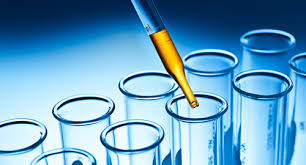
The Global Commission to End the Diagnostic Odyssey for Children , co-chaired by Takeda, Microsoft and EURORDIS-Rare Diseases Europe, an alliance of more than 800 rare disease patient organizations, announced its actionable recommendations in a report to address the barriers to diagnosis for people living with a rare disease.
In 2018, the Global Commission Co-Chairs, Shire (now Takeda), Microsoft, and EURORDIS, joined forces to bring together a multidisciplinary group of patient advocates, physicians and other experts to help solve the complex challenges impacting the rare disease community. Over the past year, the Global Commission gathered input from patients, families and other expert advisors to gain key insights to guide solutions to shorten the rare disease diagnosis timeline. The roadmap's recommendations can be mapped back to three solution pathways:
"There are more than 6,000 identified rare diseases, the vast majority of which begin in childhood, with patients receiving a misdiagnosis more than once in 40 percent of cases," said Wolfram Nothaft, M.D., Chief Medical Officer of Takeda and Global Commission Co-Chair. "As champions for those living with a rare disease, we've outlined real solutions to lessen the time to diagnosis for the more than 300 million people affected worldwide."
The Global Commission is supporting three pilot projects to bring its solution pathways to life, utilizing the expertise of its members and engaging like-minded partners who are pushing the boundaries of innovation. The pilot programs include 1) multifactorial machine learning to recognize symptom patterns, 2) collaboration tools for "intelligent triage" and clinical geneticist virtual panel consultation, and 3) developing a secure patient registry and rare disease passport, which may use emerging technologies like blockchain.
In its roadmap, the Global Commission also emphasizes the importance of global policy frameworks for rare diseases to be recognized as an international public health priority. The policy recommendations, designed to support and enable the specific solution pathways, focus on four key areas: Centers of Excellence, Genetic Screening, Data Sharing and Privacy.




